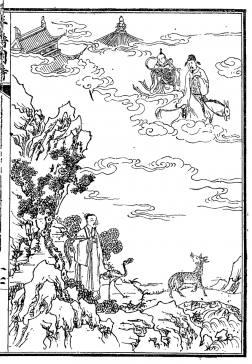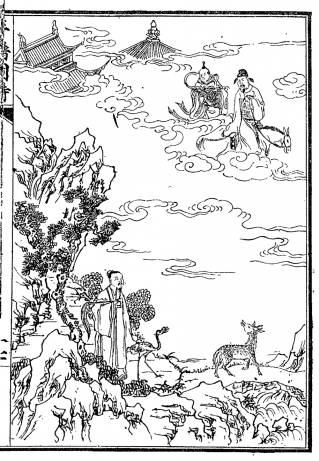Spirit–Altar Prophecy and the Civil Service Examinations in Qing Dynasty China: The Pengs of Suzhou
My contributions to the Analytical Glossary focus on how participants in the civil service examination system—both anxiety-ridden candidates and proud degree holders—accounted for the inherent uncertainties of the system through specific mantic practices and broader ideological constructions. I do so through attention to a patrilineal organization—the common surname group the Pengs—in the city of Suzhou in the seventeenth through nineteenth centuries. By the late seventeenth century the Pengs were on course to become the most successful corporate lineage in the entire empire in terms of civil examination performance during the early to mid-Qing dynasty (1644–1911).
The Pengs of Suzhou were also pioneers of a charitable style of status justification in which lineage patriarchs explained their worldly success as divine reward for the virtue of their ancestors. Beginning in the early Qing Peng patriarchs endorsed the promulgation of morality books (shanshu 善書), which contained pithy statements on proper ethical behavior and advocated their own reproduction. As a handful of key morality books accumulated anecdotal tales associated with their success use, Peng patriarchs themselves became the subjects of such works; morality books broadcast the patrilineal explanation for their examination success to an empire-wide audience; this audience was thereby encouraged to emulate the Peng philanthropic program.
The examination system was rife with contingencies: new policies, shifting curricula, the tastes and student-teacher networks of individual examiners, and the specter of corruption or simple incompetence, as well as intimate aspects such as the sheer corporeal control demanded of the examinee over the multi-day ordeal. With so many unknowns, those who sat for the examinations attempted to control for variables. Consulting spirit-mediums or spirit-altar deities regarding the content or outcome of a particular examination was a common way to plan for uncertainty.
The explanation by prominent Peng patriarchs of how they had accounted for uncertainty by eliciting divine aid as a reward for beneficent acts inspired myriads of other examination hopefuls to account for uncertainty in the same manner. By starting from lineage members’ self-narration and working outwards towards evidence of those who promulgated their claims and emulated their behavior, I aim to illuminate the familial, social, and intellectual context in which prophecy occurred and its fulfillment or failure unfolded. My sources for the discussion of emic and etic vocabulary and concepts include autobiographical accounts, poetry, séance transcripts, morality books, liturgies, and illustrations.


